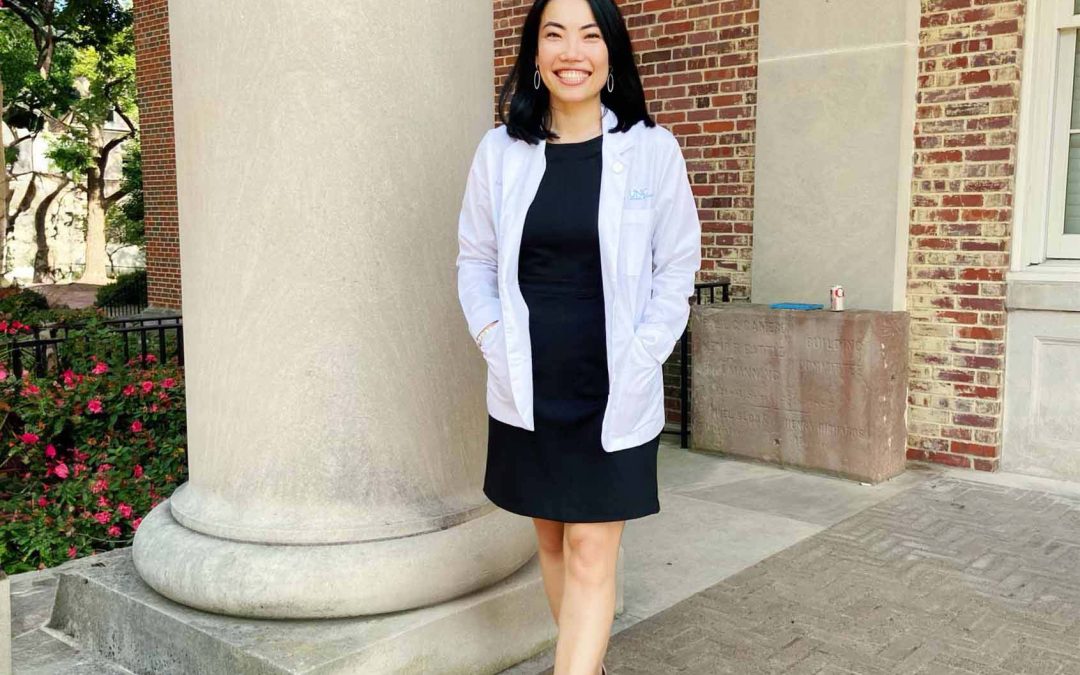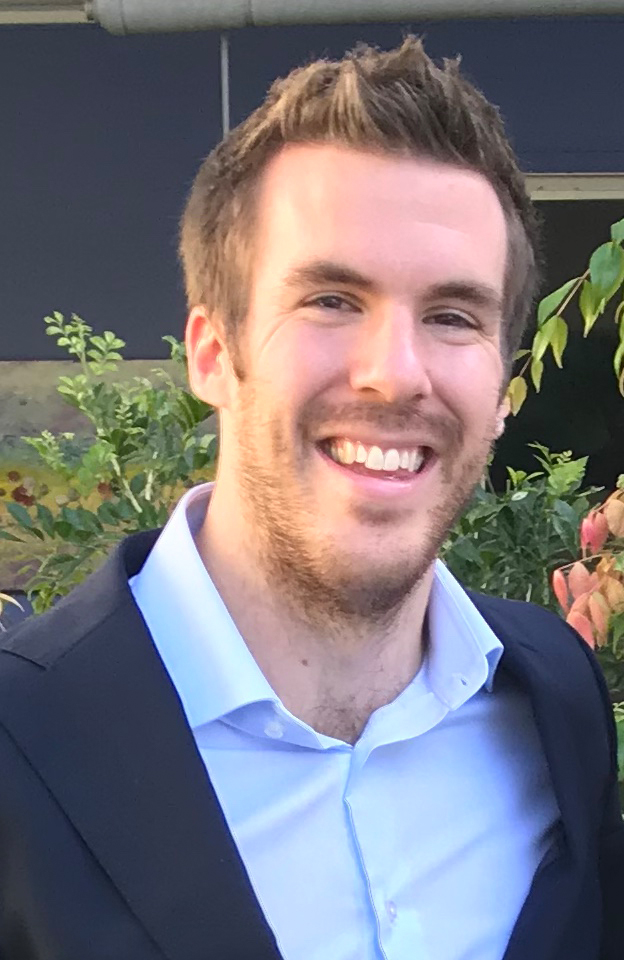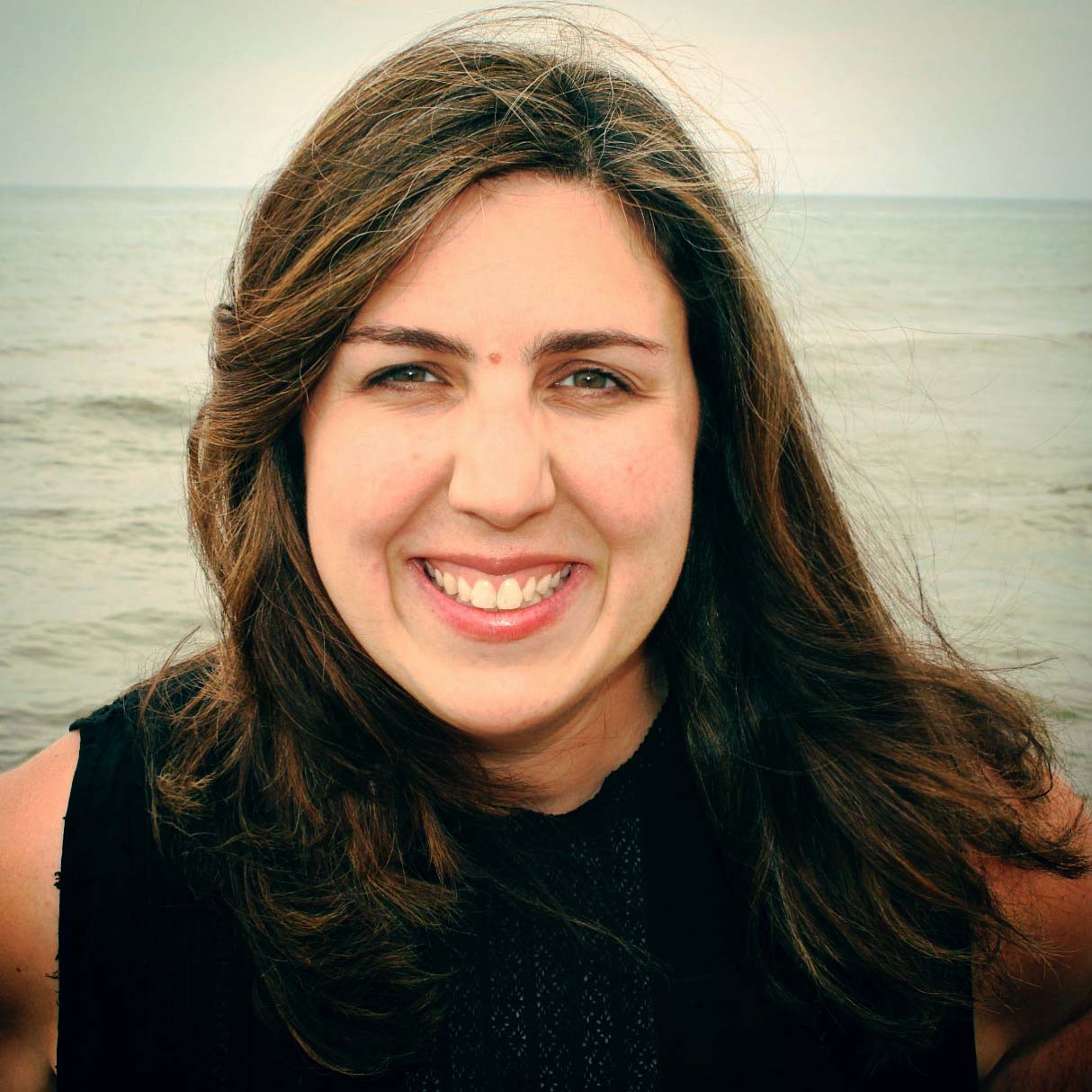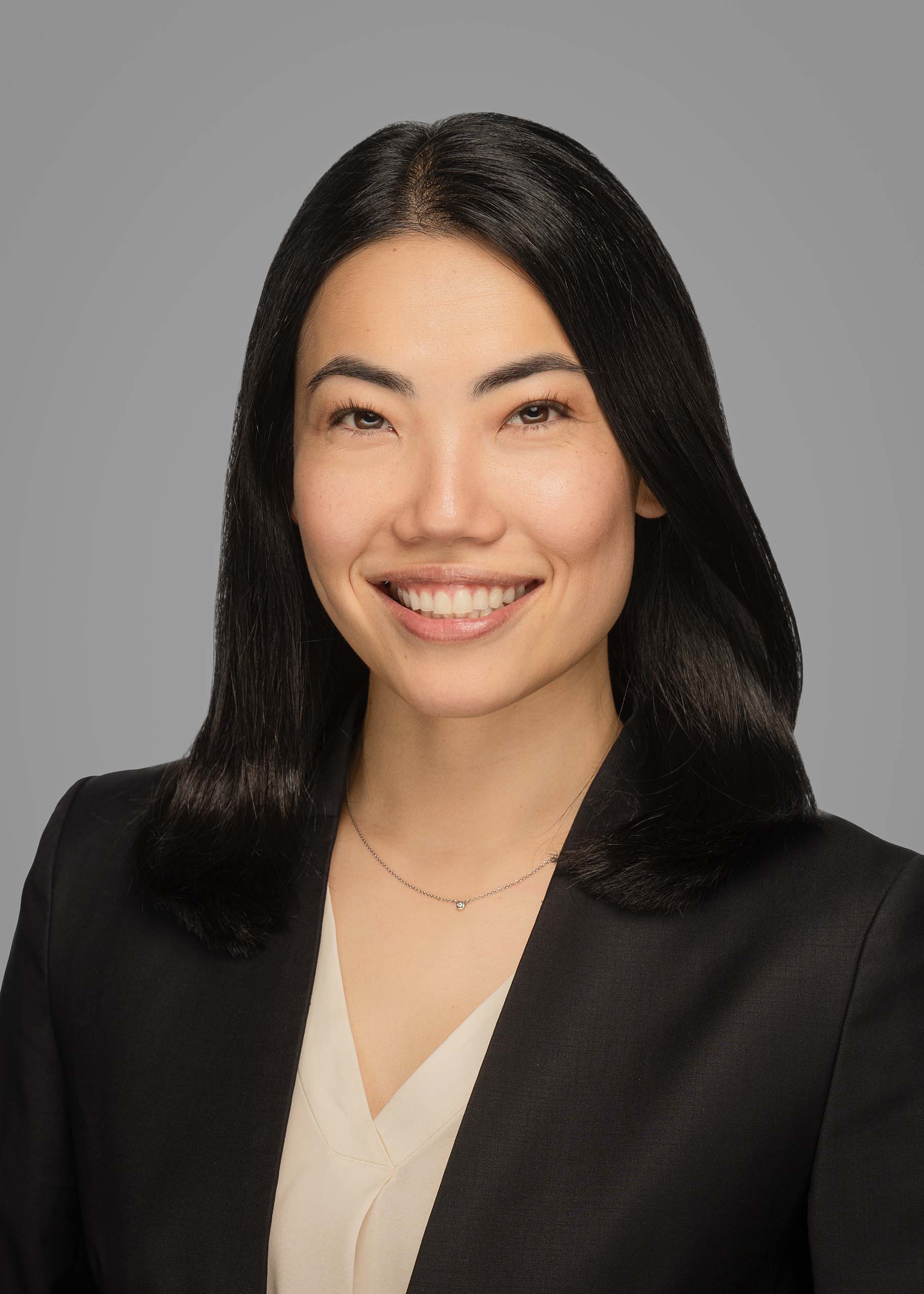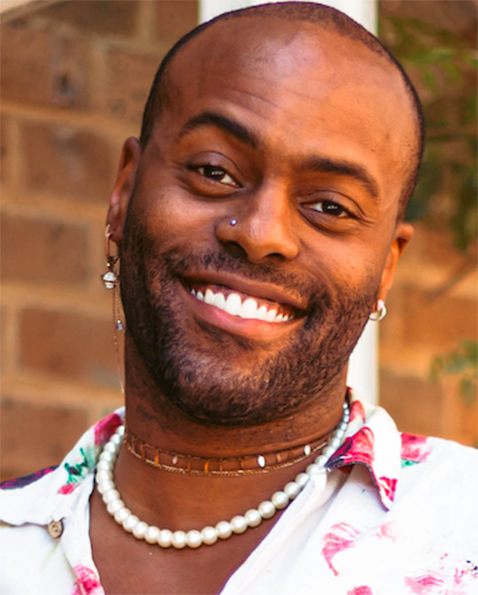Michigan Muse Winter 2024 > SMTD Graduates Thrive in Careers Outside the Performing Arts
The Roads Less Traveled: SMTD Graduates Thrive in Careers Outside the Performing Arts
By Marilou Carlin
When enrolling as an undergraduate at the School of Music, Theatre & Dance, most students envision a life devoted to their chosen field. They are, after all, passionate about the performing arts, which often defines identities at a young age.
And yet, many graduates find themselves, either during or after their time at Michigan, pulled in new and sometimes very unexpected directions. Whether dictated by circumstances or a deeply felt interest in other fields – or a combination of both – these alumni are finding fulfillment and success in a wide spectrum of careers outside the performing arts.
Here we meet five of them. Each has taken a unique journey, but all agree that their performing arts training and their SMTD studies have carried into their current work in notable and often profound ways. Musical theatre alumnus Danny Wilfred summed it up succinctly: “It’s essential for us to remember that stepping away from our primary art form doesn’t diminish our identity as artists,” he said. “Our creativity transcends mediums – it’s an intrinsic part of who we are.”
Drummer to Medical Researcher
“It’s somewhat hilarious that I work in science now, because I didn’t take a science class after 10th grade,” said Matt McCrary (BFA ’12; BS ’12), discussing his current career as a postdoctoral medical researcher. “I was only interested in playing the drums when I started at Michigan.”
Still, it was McCrary’s passion for improving drumming technique that led him to Michigan’s School of Kinesiology – which he knew almost nothing about – because he had an idea about applying sports science to musicians. By junior year, he was double majoring in jazz and kinesiology. After graduating, he landed a job as a drummer at Disneyland. “It was fun and it was cool, but there was a part of me that I wasn’t able to fulfill by being just a performer,” he said.
He wanted to further his explorations into the science of performing and how science can help musicians both perform better and avoid injuries. Eventually he connected with his PhD supervisor and was awarded a Fulbright award, which took him to the University of Sydney in Australia. His PhD thesis focused on identifying optimal warm-up strategies for musicians and then branched out to looking at how fatigue impacts performance and practice.
McCrary went on to hold research and teaching positions at the Hannover University of Music, Drama, and Media in Germany and the University of New South Wales in Sydney before taking his current role at Hannover Medical School. In addition to music physiology, he also has extensive expertise in public health, exercise science, clinical research, and cancer survivorship.
But now he has circled back to Michigan. In the last year, McCrary and his former jazz and percussion professor, Michael Gould, have begun collaborating on a new research methodology they call “Rhythm in Sport.” Their goal is to assist athletes, from enthusiasts to professionals, in exploring the significance of timing. Reversing McCrary’s longtime investigations into how sports can help musicians, their research focuses on how music – specifically the intense rhythmic training of percussionists – can help athletes. It’s a concept that Gould has been thinking about for 20 years.
“Theoretically, all we’re talking about doing is getting athletes to have a more sophisticated understanding of time, in the same way that musicians do,” said McCrary.
Last summer, McCrary and Gould published a peer-reviewed paper in the Journal of Science and Medicine in Sport, and in the coming year they plan to begin testing with real athletes, back where McCrary’s journey began: at Michigan.
Stage Manager to Novelist
For the first five years after graduating from SMTD, Erin Craig (BFA ’05, design & production) was happily employed as a stage manager, working for several opera companies, the Radio City Rockettes, and summer stock companies. Then, in 2009, she became director of production for Opera Memphis, a position she held until she and her husband became parents in 2016.
“We discovered very quickly that newborns and tech schedules do not make the best friends,” she said. So Craig became a stay-at-home mom, thinking she’d return to theatre when her daughter was school age. But after about six months, Craig resurrected a story she had started at Michigan – she had always had an interest in writing – and worked on it during her baby’s naps. The next year she began sending out agent queries and “quickly racked up about 150 rejections.”
Instead of giving up, Craig started a new book, House of Salt and Sorrows, completing a draft in two months. It was a young adult (YA) retelling of The Twelve Dancing Princesses, one of the fairy tales collected by the Brothers Grimm. Through a Twitter “pitch party” that helps writers find agents, she received 87 requests for her manuscript. She landed an agent, who, after a round of edits, sold the book in eight days. It was published by Delacorte Press in August 2019, hitting The New York Times best sellers list, young adult hardcover books, in its second week.
Since then, film rights were sold and Craig published two more bestselling YA novels, with a fourth scheduled for release this year. In 2025, her first adult novel, A Land So Wide, will be published by Pantheon.
Craig was always a lover of fairy tales, but her opera and theatre experience influenced her to use them as the basis of her fiction. “There’s something inherently timeless about the classics we keep going back to,” she said. “In changing the location and the time period you get a completely new take.” Craig says she can’t count how many setting variations of Rigoletto she stage managed. “I kind of fell into retelling stories very naturally that way,” she said.
She added that her SMTD training was invaluable to her current career. “So much of the skill set and the way I attack a book is very much like getting ready to stage manage a show,” she said. “I can see it in my head, like you would going into rehearsal. All of the academics of theatre informed what ended up coming across on the page.”
Dancer to Surgeon
Yoshiko Iwai (BFA ’18, BS ’18) chose Michigan because it was the only place where she felt she’d get the top-caliber dance training she sought while also finding endless opportunities to explore other areas of study. Though fully committed to dance, her priorities changed when, at the end of her freshman year, a family member experienced a cancer recurrence.
“It was a moment to step back and reflect on what I wanted to do with the rest of my life,” she said. “I began looking at neuroscience because it was a good place for me to explore movement through a different lens.”
She became a double major in dance and neuroscience, while also enrolling in a long-form journalism course and writing for The Michigan Daily. “That was really pivotal for my educational journey and my career,” she said. “It was a great place for me to connect my interests in the arts and the sciences; it gave me a place to explore the similarities and the differences.”
It also led to her next steps. Though intent on going to medical school, Iwai took a “planned detour,” moving to New York to study at Columbia University. Columbia had a master’s program in narrative medicine, a relatively new scholarly approach to understanding patients’ narratives and applying them to clinical practice. Accepted into the program, Iwai simultaneously pursued an MFA in creative nonfiction. At the same time, she took full advantage of New York’s many “phenomenal” dance classes. “I was figuring out how the performing arts could fit in my life as I more formally transitioned out of it, and I was able to inhabit multiple worlds,” she said.
After graduating, Iwai enrolled at the University of North Carolina School of Medicine and is now about to begin a residency in general surgery at Harvard Medical School/Massachusetts General Hospital, after which she will pursue a fellowship in either surgical oncology or thoracic oncology. Though it seems a long way from dance, she still sees parallels in the two fields.
“Being involved in the performing arts has ingrained a really strong work ethic in me that has been conducive to pursuing this long path to becoming a doctor and being a lifelong learner,” she said. “I’m so grateful for the way dance has made me more perceptive of my ability to relate to other people – to empathize and communicate effectively, which is so important when you’re working with really sick patients, and especially in cancer care. One of things I love about surgery is how tactile it is – it’s all completely physical, so in some way it really reminds me of dance.”
Music Teacher to Lawyer
Despite the Great Recession of 2008, Ivan Navedo (BM ’08, music education, clarinet) managed to land a “fantastic job” following graduation: he became a band teacher at a well-funded middle school in Lake Forest, Illinois.
But Navedo had always dreamed of teaching in an underserved community where he could make a real impact. “I wanted to come up with some sort of creative band program that hadn’t existed before, that could bring ensemble playing to students who wouldn’t have it otherwise,” he said.
So when a full-time position was offered in East Harlem, New York, teaching general music to 330 students in grades 9–12, Navedo jumped at it. He designed a civil rights–era curriculum focused on music in historical context; started a Latin-jazz band for which he transcribed and arranged music for beginner players; and led an after-school Brazilian drumming group for students with chronic absenteeism – all while getting his master’s in music education from Columbia University Teachers College.
“It was fulfilling and very successful,” said Navedo. “A third of the school enrolled in the [optional] ensembles. It was a really fun program, and it was growing and exciting.”
However, after six years of teaching and amidst a swath of school closures that jeopardized both the students’ education and the community’s identity, Navedo decided it was time to take his skills in a different direction; he wanted to try to work “on a broader range of problems.” So he enrolled in Northwestern University’s Pritzker School of Law and interned at the US Department of Education Office for Civil Rights.
Today, Navedo is a senior associate at WilmerHale in New York, where he practices antitrust and intellectual property law. He also maintains a pro bono practice that focuses on education law and impact litigation.
Navedo says that studying music education at Michigan instilled values and an identity that have served him well as a lawyer. “I don’t think I ever worked harder on anything than I worked on my senior recital,” he said. “Ever since, I’ve been able to approach all problems with determination and hard work.” He said that SMTD’s approach to teaching was about engineering the right solution to the problem. “That requires a sophisticated understanding of, What are we here to do, why are we doing it, and what are the pitfalls and distractions we may encounter along the way? That kind of big picture focus applies to any problem-solving that I’ve ever had to do.”
Musical Theatre Performer to Mental Health Counselor
Danny Wilfred (BFA ’13, musical theatre) was living in New York and had recently acquired his Actor’s Equity card. He’d spent a decade pursuing a musical theatre career, performing in New York City, on tours, and in regional productions around the country. And suddenly, in March 2020, it came to a grinding halt. The COVID-19 pandemic had arrived, and the future of live performance was on hold indefinitely.
“We were considered non-essential, and that was a real stomach punch,” said Wilfred. “I thought, ‘I don’t think I’m non-essential, so what else can I do?’” He decided to apply to Northwestern University’s master’s program in clinical mental health counseling, an area in which he’d long had an interest. He remembers thinking, “If I’m supposed to do this right now, I’ll get in.” And he did. So he and his partner, also a theatre professional pursuing a social work degree, moved to the slightly more affordable Philadelphia, where he began the virtual course of study. He’s now completing his internship and will graduate next fall.
The change is not entirely out of left field. “I recognized how therapeutic the arts and performing were for me in my adolescence and early adulthood,” said Wilfred. “The empathy and understanding of the human condition that we learn in the musical theatre program was absolutely something I continue to carry into my work today. There are many ways to incorporate what I learned into mental health counseling – narrative therapy, psycho-drama, art-based therapies. All are interventions that I’ve been able to use with my clients.”
Wilfred plans to specialize in counseling children and adolescents, especially as they graduate high school and enter college, with a particular focus on LGBTQ and BIPOC individuals. “Most of my clients are also artists, writers, and performers,” he said. “I think I have special awareness of their needs and what their experiences are as they’re trying to define themselves and continue healing and become authentically themselves.”
After making the move to Philadelphia, Wilfred was pleased to discover its vibrant theatre scene, which has led to several performance opportunities, including a return to New York for a role in the Off Broadway hit The Appointment. And thanks to the flexibility of his remote studies and telehealth counseling sessions, he’s able to take advantage of those opportunities as they arise – all of which has left him inspired, optimistic, and grateful.
“The magic that you learn at Michigan is always within you,” he said, “and always available no matter what course your life might take afterwards.”

